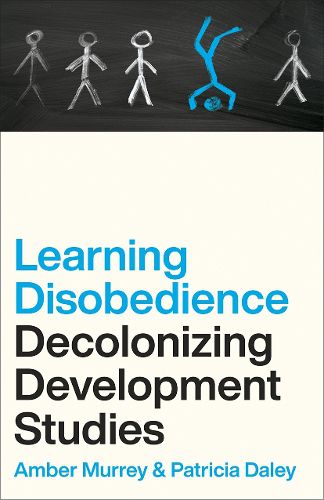Readings Newsletter
Become a Readings Member to make your shopping experience even easier.
Sign in or sign up for free!
You’re not far away from qualifying for FREE standard shipping within Australia
You’ve qualified for FREE standard shipping within Australia
The cart is loading…






This is a book about teaching 'disobedient pedagogies' from the heart of empire. The authors show how educators, activists and students are cultivating anti-racist decolonial practices, leading with a radical call to eradicate development studies, and counterbalancing this with new projects to decolonize development, particularly in African geographies.
Being intentionally disobedient in the classroom is central to decolonizing development studies. The authors ask: What does it mean to study international development today? Whose knowledge and perspectives inform international development policy and programming?
Building on the works of other decolonial trailblazers, the authors show how colonial legacies continue to shape the ways in which land, wellbeing, progress and development are conceived of and practiced. How do we, through our classroom and activist practices, work collaboratively to create the radical imaginaries and practical scaffolding we need for decolonizing development?
$9.00 standard shipping within Australia
FREE standard shipping within Australia for orders over $100.00
Express & International shipping calculated at checkout
This is a book about teaching 'disobedient pedagogies' from the heart of empire. The authors show how educators, activists and students are cultivating anti-racist decolonial practices, leading with a radical call to eradicate development studies, and counterbalancing this with new projects to decolonize development, particularly in African geographies.
Being intentionally disobedient in the classroom is central to decolonizing development studies. The authors ask: What does it mean to study international development today? Whose knowledge and perspectives inform international development policy and programming?
Building on the works of other decolonial trailblazers, the authors show how colonial legacies continue to shape the ways in which land, wellbeing, progress and development are conceived of and practiced. How do we, through our classroom and activist practices, work collaboratively to create the radical imaginaries and practical scaffolding we need for decolonizing development?